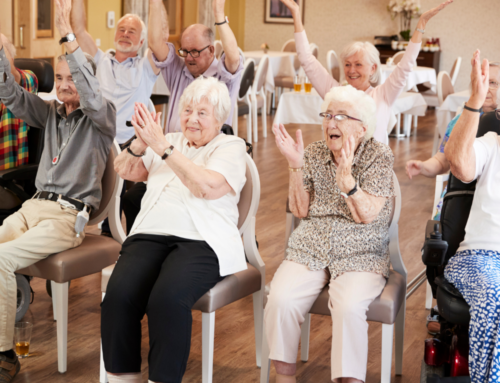Share This Story!
Maintaining Stronger Vision
Many people know the frustration that comes with not being able to see as clearly from aging. But often, poorer eyesight can be blamed on behaviors as opposed to genetics or an inevitable side effect of age, even for younger adults. Consider following these five tips to help protect vision and reduce the need for glasses, contacts, or even LASIK.
1. Follow the 20-20-20 rule
In today’s tech-focused world, people spend a lot of time staring at screens. Whether an individual spends all day on a computer or browses a smartphone or tablet when away from work, excess screen time has been linked to declining eyesight. Specifically, an increased risk for eye strain and dry eye can occur because people tend to blink less when staring at screens for long periods. Both conditions can lead to poor eyesight. Remember the 20-20-20 rule. Take a break from screens every 20 minutes, and look away at an object that’s at least 20 feet away for 20 seconds.
2. Eat a healthy diet
Unsurprisingly, poorer vision can also be linked to an unhealthy diet. Studies have shown that antioxidants and vitamins A, C, and E have all been proven to help prevent macular degeneration. Focus on foods such as:
- broccoli
- oranges
- papaya
- sweet potato
- almonds
- spinach
- red peppers
- pumpkin
- carrots
- peanut butter
- sunflower seeds
3. Sunglasses for more than fashion
Sunglasses can do more than making a person look fabulous. The right pair of sunglasses can protect eyes from harmful UVA and UVB rays. Ideally, look for options that offer the highest level of UV ray protection. Most reputable brands clearly label the amount of UVA or UVB protection on the sunglasses or in the product description. Also, people with diabetes or people diagnosed with macular degeneration should opt for lenses that are amber or brown to help improve contrast for better vision while wearing sunglasses.
4. Avoid smoking
Smoking isn’t just bad for a person’s lungs, the habit can also contribute to optic nerve damage, macular degeneration, and cataracts. For people that smoke, consider talking to a physician about starting a cessation program. And for people who don’t currently smoke, don’t start.
5. Get or stay active
Many people are surprised to find that physical activity can contribute to better eye health. Studies have shown that exercising can improve blood and oxygen flow to the eyes and minimize the risk of dry eyes. Even low-impact activities like a brisk walk through the park or yoga can improve blood flow.
Protecting the peepers
Poor vision isn’t an inevitable diagnosis. While people should have vision regularly checked with routine eye exams, following the tips outlined above can help to reduce the risk of declining vision or eye conditions like dry eye, eye strain, and even more complex diagnoses like macular degeneration or cataracts. For more information, speak with a healthcare provider.





